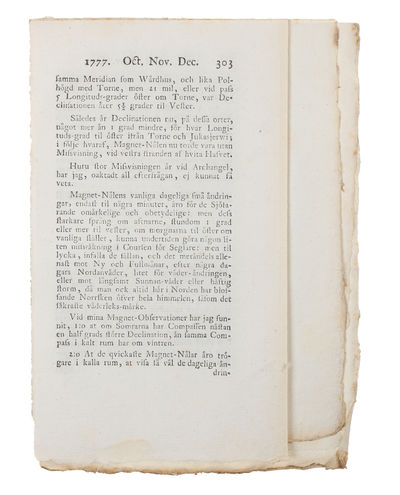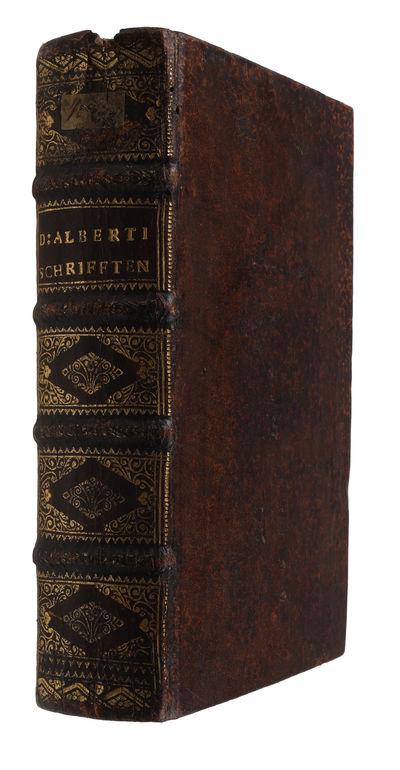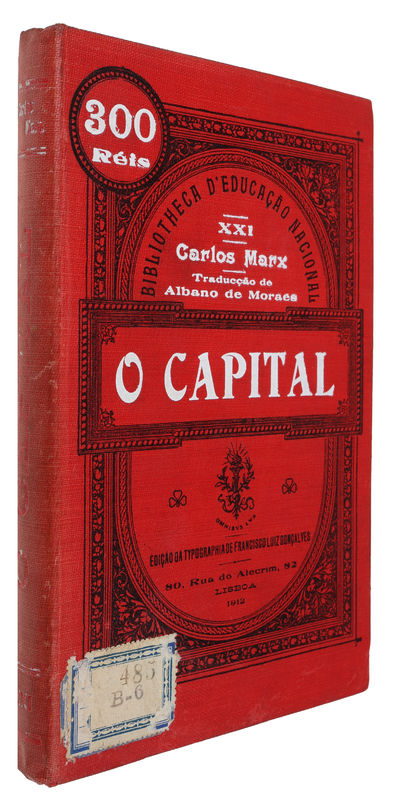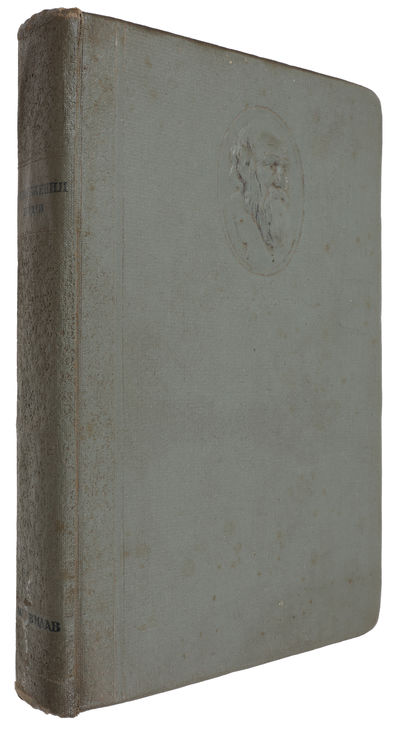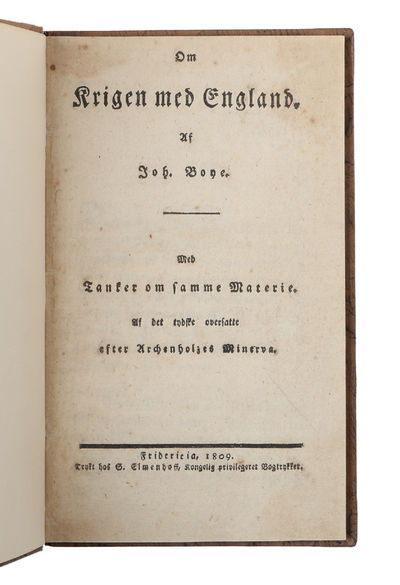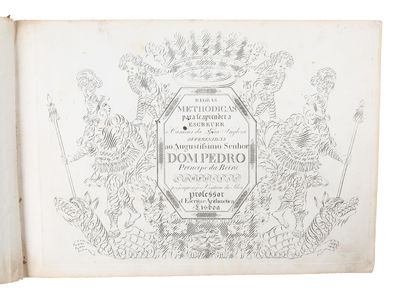ZWINGER, THEODOR.
Theatrum humanae vitae. 29 parts (all). - [“PERHAPS THE MOST COMPREHENSIVE COLLECTION OF KNOWLEDGE TO BE COMPLIED BY A SINGLE INDIVIDUAL IN THE EARLY MODERN PERIOD”]
Herman H. J. Lynge & Søn A/S
lyn61212
Basel, Eusebius Episcopius, 1586 & 1587. Folio (360 x 225 mm). 29 part uniformly bound in 5 contemporary full calf bindings with 6 raised bands. All bindings with wear and numerous wormholes to boards. All spine-ends chipped and with a bit of loss of leather. Boards with scratches and occassional loss of leather. Internally with light occassional marginal dampstains. Numerous wormtract throughout in all volumes. (40), 1180 pp.; (1181)-2196 pp.; (2199)-3246 pp.; (3247)-4226 pp. (4225)-4230, (1), 4230-4373, (1), (458) pp.
Third edition of Zwinger’s early and extensive encyclopedic collection attempting to categorize and summarize human knowledge and experience: "perhaps the most comprehensive collection of knowledge to be compiled by a single individual in the early modern period." (Helmut Zedelmaier, "Navigieren im Text-Universum: Theodor Zwingers Theatrum Vitae Humanae). Complete early sets, as here, from the 16th century are rarely found in the trade. The present edition is the third overall edition, the second enlarged edition: “Zwinger’s Theater of Human Life had been issued in one volume in 1565, in enlarged editions of 1571 and 1586 [The present], then by his son in 1604. The arrangement was topical by subject. In 1631 a further enlargement in alphabetical order by Laurens Beyerlinck was published at Cologne in eight doule columned folio volumes.” (Thorndike VIII, p. 271). The work is a fine excample of the Renaissance humanist tradition, emphasizing the collection and organization of knowledge from various fields such as philosophy, medicine, ethics, and natural sciences. Zwinger's work draws upon both classical sources as well as more contemporary knowledge. The 29 parts are divided as follows: Binding 1: 1, Volumen primum Ea quae animi bona atque mala dicuntur. 2, Volumen secundum Ea quae vulgo corporis bona mala´que dicuntur. 3, Volumen tertium Ea quae vulgo fortuita bona mala´que dicuntur. 4, Volumen quartum De habitibus organicis sive facultatibus logicis vulgo` dictis h.e. de philosophiae instrumentis. Binding 2: 5, Volumen quintum De philosophicis habitibus theoricis, veri cognitionem potissimu`m spectantibus. 6, Volumen sextum De philosophicis habitibus practicis ad boni cognitionem simul & possessionem primario` conferentibus. 7, Volumen septimum Quo habitus intelligentiae practici, prudentia scilicet, cum suis extremis, calliditate & stultitia. 8, Volumen octavum De fortitudinis, & contrariorum vitiorum, audaciae scilicet & timiditatis, speciebus. Binding 3: 9, Volumen nonum De temperantia & intemperantia circa voluptates corporis. 10 ,Volumen decimum De moderatione & immoderatione circa pecunias & opes quaslibetcunque. 11, Volumen undecimum De moderatione & immoderatione circa gloriam & honores. 12, Volumen duodecimum De moderatione & immoderatione circa iram & vindictam. 13, Volumen decimumtertium De veritatis practicae studio, de simulatione & dissimulatione. 14, Volumen decimumquartum De humanitate & contrariis vitiis, blanditia & morositate. 15, Volumen decimumquintum De urbanitate & contrariis vitiis, scurilitate & rusticitate. 16, Volumen decimumsextum De iustitia religiosa. 17, Volumen decimumseptimum De iniustitia religiosa. Binding 4: 18, Volumen decimumoctavum De iustitia profana. 19. Volumen decimumnonum Iniustitiam profanam distributivam atque correctivam. 20, Volumen vigesimum De mechanicis habitibus. 21, Volumen vigesimumprimum De instrumentis actionum & passionum humanarum. 22, Volumen vigesimumsecundum De beatitudine & miseria humana. 23, Volumen vigesimumtertium De locis humanarum actionum & passionum. 24, Volumen vigesimumquartum De tempore humanas actiones & passiones mensurante. 25, Volumen vigesimumquintum De vita hominis solitaria. 26, Volumen vigesimumsextum Vitam hominis academicam persequens. 27, Volumen vigesimumseptimum Vitam hominis religiosam exponens. Binding 5: 28, Volumen vigesimumoctavum De vita hominis politica. 29, Volumen vigesimumnonum Oeconomicam vitam hominis. [30] Quatuor locupletis indices. Adams Z 215.
Third edition of Zwinger’s early and extensive encyclopedic collection attempting to categorize and summarize human knowledge and experience: "perhaps the most comprehensive collection of knowledge to be compiled by a single individual in the early modern period." (Helmut Zedelmaier, "Navigieren im Text-Universum: Theodor Zwingers Theatrum Vitae Humanae). Complete early sets, as here, from the 16th century are rarely found in the trade. The present edition is the third overall edition, the second enlarged edition: “Zwinger’s Theater of Human Life had been issued in one volume in 1565, in enlarged editions of 1571 and 1586 [The present], then by his son in 1604. The arrangement was topical by subject. In 1631 a further enlargement in alphabetical order by Laurens Beyerlinck was published at Cologne in eight doule columned folio volumes.” (Thorndike VIII, p. 271). The work is a fine excample of the Renaissance humanist tradition, emphasizing the collection and organization of knowledge from various fields such as philosophy, medicine, ethics, and natural sciences. Zwinger's work draws upon both classical sources as well as more contemporary knowledge. The 29 parts are divided as follows: Binding 1: 1, Volumen primum Ea quae animi bona atque mala dicuntur. 2, Volumen secundum Ea quae vulgo corporis bona mala´que dicuntur. 3, Volumen tertium Ea quae vulgo fortuita bona mala´que dicuntur. 4, Volumen quartum De habitibus organicis sive facultatibus logicis vulgo` dictis h.e. de philosophiae instrumentis. Binding 2: 5, Volumen quintum De philosophicis habitibus theoricis, veri cognitionem potissimu`m spectantibus. 6, Volumen sextum De philosophicis habitibus practicis ad boni cognitionem simul & possessionem primario` conferentibus. 7, Volumen septimum Quo habitus intelligentiae practici, prudentia scilicet, cum suis extremis, calliditate & stultitia. 8, Volumen octavum De fortitudinis, & contrariorum vitiorum, audaciae scilicet & timiditatis, speciebus. Binding 3: 9, Volumen nonum De temperantia & intemperantia circa voluptates corporis. 10 ,Volumen decimum De moderatione & immoderatione circa pecunias & opes quaslibetcunque. 11, Volumen undecimum De moderatione & immoderatione circa gloriam & honores. 12, Volumen duodecimum De moderatione & immoderatione circa iram & vindictam. 13, Volumen decimumtertium De veritatis practicae studio, de simulatione & dissimulatione. 14, Volumen decimumquartum De humanitate & contrariis vitiis, blanditia & morositate. 15, Volumen decimumquintum De urbanitate & contrariis vitiis, scurilitate & rusticitate. 16, Volumen decimumsextum De iustitia religiosa. 17, Volumen decimumseptimum De iniustitia religiosa. Binding 4: 18, Volumen decimumoctavum De iustitia profana. 19. Volumen decimumnonum Iniustitiam profanam distributivam atque correctivam. 20, Volumen vigesimum De mechanicis habitibus. 21, Volumen vigesimumprimum De instrumentis actionum & passionum humanarum. 22, Volumen vigesimumsecundum De beatitudine & miseria humana. 23, Volumen vigesimumtertium De locis humanarum actionum & passionum. 24, Volumen vigesimumquartum De tempore humanas actiones & passiones mensurante. 25, Volumen vigesimumquintum De vita hominis solitaria. 26, Volumen vigesimumsextum Vitam hominis academicam persequens. 27, Volumen vigesimumseptimum Vitam hominis religiosam exponens. Binding 5: 28, Volumen vigesimumoctavum De vita hominis politica. 29, Volumen vigesimumnonum Oeconomicam vitam hominis. [30] Quatuor locupletis indices. Adams Z 215.
Adresse:
Silkegade 11
DK-1113 Copenhagen Denmark
Telefon:
CVR/VAT:
DK 16 89 50 16
E-post:
Nettsted:
![Theatrum humanae vitae. 29 parts (all). - [“PERHAPS THE MOST COMPREHENSIVE COLLECTION OF KNOWLEDGE TO BE COMPLIED BY A SINGLE INDIVIDUAL IN THE EARLY MODERN PERIOD”] (photo 1)](https://d3525k1ryd2155.cloudfront.net/h/735/895/1606895735.0.l.jpg)
![Theatrum humanae vitae. 29 parts (all). - [“PERHAPS THE MOST COMPREHENSIVE COLLECTION OF KNOWLEDGE TO BE COMPLIED BY A SINGLE INDIVIDUAL IN THE EARLY MODERN PERIOD”] (photo 2)](https://d3525k1ryd2155.cloudfront.net/h/735/895/1606895735.1.l.0.jpg)
![Theatrum humanae vitae. 29 parts (all). - [“PERHAPS THE MOST COMPREHENSIVE COLLECTION OF KNOWLEDGE TO BE COMPLIED BY A SINGLE INDIVIDUAL IN THE EARLY MODERN PERIOD”] (photo 3)](https://d3525k1ryd2155.cloudfront.net/h/735/895/1606895735.2.l.0.jpg)
![Theatrum humanae vitae. 29 parts (all). - [“PERHAPS THE MOST COMPREHENSIVE COLLECTION OF KNOWLEDGE TO BE COMPLIED BY A SINGLE INDIVIDUAL IN THE EARLY MODERN PERIOD”] (photo 4)](https://d3525k1ryd2155.cloudfront.net/h/735/895/1606895735.3.l.0.jpg)
![Theatrum humanae vitae. 29 parts (all). - [“PERHAPS THE MOST COMPREHENSIVE COLLECTION OF KNOWLEDGE TO BE COMPLIED BY A SINGLE INDIVIDUAL IN THE EARLY MODERN PERIOD”] (photo 5)](https://d3525k1ryd2155.cloudfront.net/h/735/895/1606895735.4.l.0.jpg)
